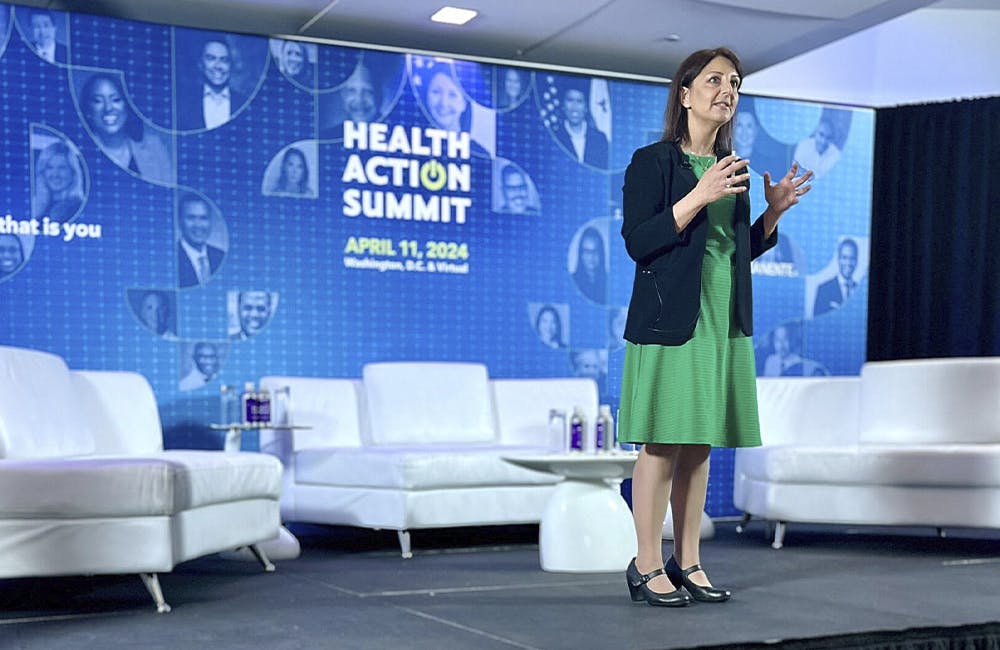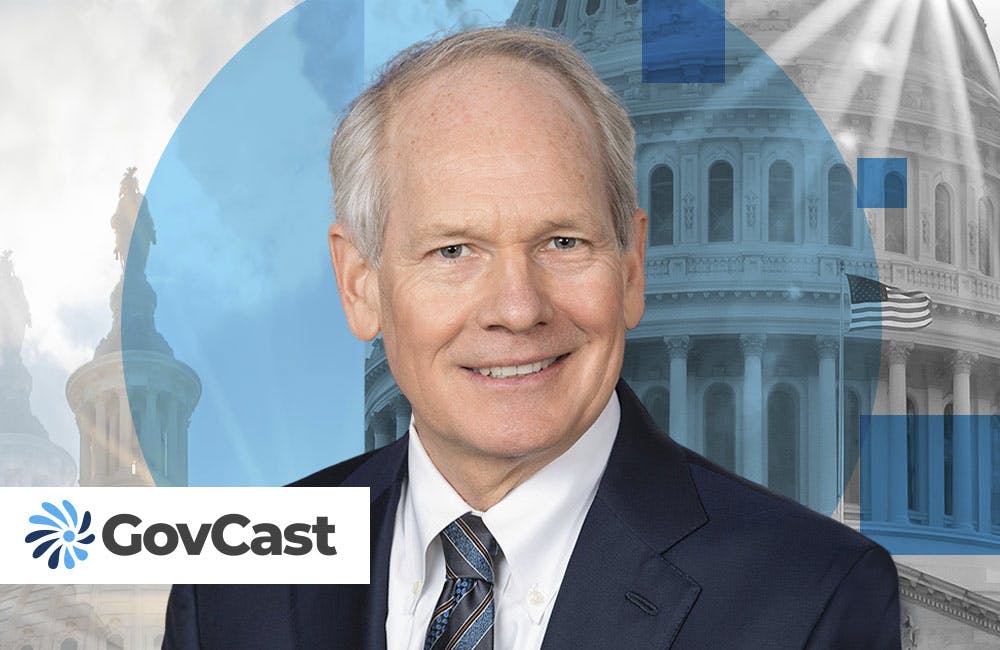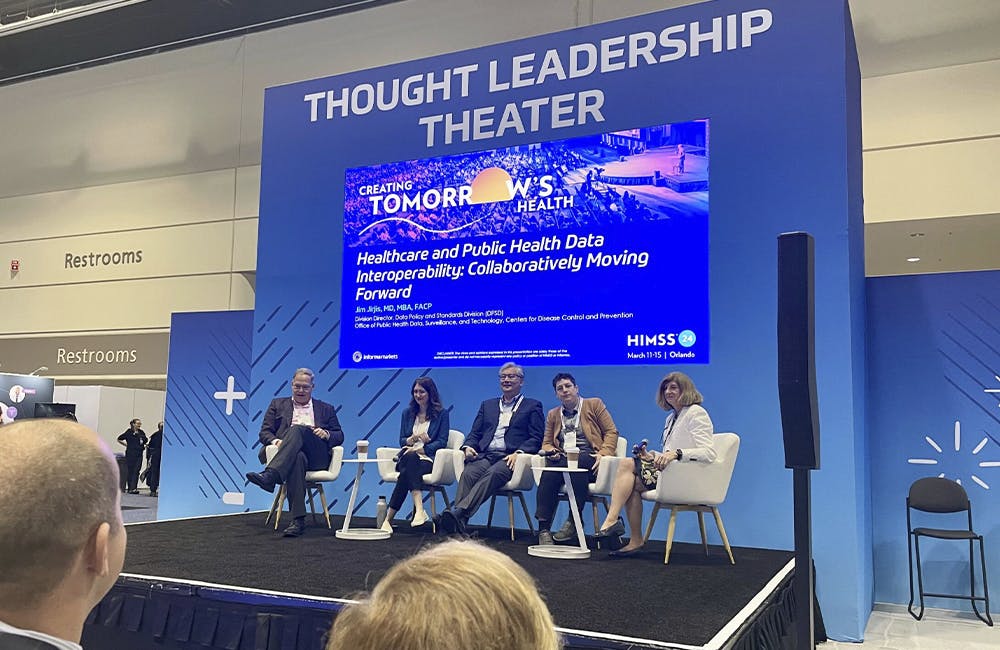Agencies Commit to Reproductive Health Care Rights Amid Roe Overturn
HHS, CMS and VA have spoken out about recent Supreme Court rulings concerning Roe v. Wade.

Federal health agencies are affirming that they will continue to support abortion access and gender-specific care in the wake of the U.S. Supreme Court’s Dobbs v. Jackson ruling last week.
The ruling, which held that the U.S. Constitution does not confer a right to abortion, overturns the landmark 1973 Roe v. Wade decision. While the recent ruling does not nationally ban abortion procedures and treatment, the court determined that the Constitution does not prevent state legislatures from banning abortion.
13 states have “trigger” laws in place to implement abortion treatment restrictions upon the court’s ruling, but most states as of now still maintain access. While no federal ban on abortion or reproductive health services is in place, health agencies are pushing to ensure access and resources for gender-specific reproductive health care.
At the executive level, President Joe Biden has called on Congress to restore the protections of Roe. In the meantime, he has called on his administration to protect the right to seek reproductive medical care — especially as individuals can still freely travel to other states to seek the care they need— and access to medication.
Since abortion treatment is not banned under federal law, and the Department of Veterans Affairs operates at the federal level, Department of Veterans Affairs Secretary Denis McDonough said in a statement to the press that the VA will continue to provide reproductive health services.
“Access to gender-specific reproductive health services, including contraception and fertility services, is and will remain a critical component of Veteran health care. The Department of Veterans Affairs delivery of reproductive health care operations continues consistent with our Federal legal authority, despite today’s Supreme Court decision,” McDonough said.
McDonough’s statement connected the court ruling to its overall mission, emphasizing that “our commitment to providing reproductive health care to the Veterans we serve is unwavering.”
VA has endeavored to increase the quality and scope of its reproductive and women’s health services over the past few years, especially as the proportion of women veterans have increased. These include providing a broader scope of maternity care and associated services, with the number of women veterans turning to VA for healthcare having risen substantially as well.
Amid these increases, the agency has worked to improve access to reproductive and maternity care services, including improvements to rural care alongside increased staffing and service availability at VA clinics.
The number of women veterans accessing VA health services has more than tripled over the past fifteen years to over 545,000 annually, with the number of women overall accessing VA services each year now exceeding 1 million.
At the Centers for Medicare and Medicaid Services, over 80 million women and girls receive services across Medicare, Medicaid, CHIP and the Affordable Care Act. Administrator Chiquita Brooks-LaSure said that CMS will continue efforts to ensure access to reproductive health care moving forward.
“CMS will continue working to maintain and expand access to the full range of reproductive health care services across the lifespan — that includes IUDs, emergency contraception, oral contraception, other forms of contraception and abortion care within our legal authority,” Brooks-LaSure said in a press release. “It is our fundamental value that reproductive health care is critical to ensuring that everyone can build healthy lives with economic security.”
Under the Affordable Care Act, most public and private health coverage are required to provide family planning counseling and birth control at no cost to the patient. Under federal law, Medicaid will cover abortion services in the circumstances of rape, incest or if the patient’s life is in danger.
“A woman’s right to make decisions about her health is essential,” Brooks-LaSure said. “As we review today’s Supreme Court decision, as the Administrator of the Centers for Medicare & Medicaid Services, I will do everything in my authority to ensure that people have the choice of when and how to start a family.”
HHS Secretary Xavier Becerra noted that he has directed the components of his agency to continue providing abortion and reproductive treatment access as well.
“We stand unwavering in our commitment to ensure every American has access to health care and the ability to make decisions about health care — including the right to safe and legal abortion, such as medication abortion that has been approved by the FDA for over 20 years,” Becerra said. “I have directed every part of my department to do any and everything we can here. As I have said before, we will double down and use every lever we have to protect access to abortion care.”
HHS published a press release following the court’s decision highlighting reproductive health rights that are still in effect, including the ability for patients to receive medication abortion by telehealth, in-person medical professional approvals and mail via prescribers and pharmacies. The statement also provides information on access to other preventive health services, such as breast and cervical cancer and HIV screenings, prenatal care, and other gender-specific reproductive care services.
This is a carousel with manually rotating slides. Use Next and Previous buttons to navigate or jump to a slide with the slide dots
-

CDC Updates Public Health Data Strategy
Accelerating data sharing through capabilities like electronic case reporting make up a large portion of the new two-year plan.
3m read -

How VA is Using Digital Services to Expand Care to Veterans
CIO Kurt DelBene says the the agency’s 2024 priorities included AI adoption, hiring and a better user experience for veterans.
30m listen -

How AI, Digital Transformation in Health Care Compare Around the World
HHS and EU officials contrasted the different frameworks for emerging technology and the challenges that remain.
4m read -

Health Agencies Tout Standards in Data Sharing, Interoperability
Officials from CMS, ONC and HHS spoke about data standards and how to help smaller health organizations make modernization progress.
3m read










